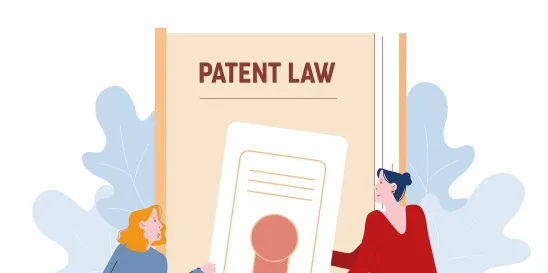This case addresses how Patent Term Adjustment (PTA) interacts with obviousness-type double patenting (ODP).
Background
Cellect sued Samsung Electronics, Co. for infringement of four patents. Subsequently, Samsung requested four ex parte reexaminations asserting that the patents were unpatentable based on ODP, which was not raised by the examiner during prosecution. In each ex parte reexamination, the examiner determined that the challenged claims were obvious variants of Cellect’s prior-expiring reference.
patent claims. All invalidated claims can be traced back to the single family member patent that did not receive a grant of PTA (Patent Term Adjustment): the ’036 patent. Cellect appealed to Patent Trial and Appeal Board (the “Board”). Cellect noted that ODP does not invalidate a validly obtained Patent Term Extension (“PTE”) and primarily argued that the Board should similarly hold that ODP cannot negate a statutory grant of PTA.
The Board framed the issue as a question of how PTA affects an ODP analysis and whether an ODP analysis should be based on the expiration date of a patent with or without any granted PTA added. The Board then held that both ODP and terminal disclaimers should be considered after any PTA, and sustained the examiner’s rejection in each ex parte reexamination. Cellect appealed to the Federal Circuit.
Issues
- Did the Board err in finding that whether claims are unpatentable for ODP is determined based on the date of expiration of a patent that includes any duly granted PTA pursuant to 35 U.S.C. § 154?
- Did the Board err in failing to consider the equitable concerns underlying the finding of ODP in the ex parte reexamination proceedings?
- Did the Board err in finding a substantial new question of patentability in the underlying ex parte reexaminations?
Holding(s)
- No. The Board did not err in finding that whether claims are unpatentable for ODP is determined based on the date of expiration of a patent that includes any duly granted PTA pursuant to 35 U.S.C. § 154.
- No. The Board did not fail to consider the equitable concerns underlying the finding of ODP in the ex parte reexamination proceedings.
- No. The Board did not err in finding a substantial new question of patentability in the underlying ex parte reexaminations.
Reasoning
(1) The Federal Circuit agreed with the USPTO that PTA and PTE should be treated differently from each other when determining whether or not claims are unpatentable under ODP. While the expiration date used for an ODP analysis where a patent has received PTE is the expiration date before the PTE has been added, the expiration date used for an ODP analysis where a patent has received PTA is the expiration date after the PTA has been added. While PTE is designed to effectively extend the overall patent term for a single invention due to regulatory delays in product approval, PTA is designed to extend the term of a particular patent due to delays in the processing of that patent. According to the Federal Circuit, ODP is a judicially created doctrine with a purpose to prevent an inventor from securing a second, later-expiring patent for non-distinct claims. There is nothing in the PTA statute to suggest that application of ODP to the PTA-extended patent term would be contrary to the congressional design. The Federal Circuit further found that, here, the patents are related, claim overlapping subject matter, and have different expiration dates only because of PTA. Thus, ODP applies to ensure that the applicant is not receiving an unjust extension of time.
The Federal Circuit noted that terminal disclaimers are almost always filed to overcome ODP rejections. Cellect had the opportunity to file terminal disclaimers during both prosecution and ex parte reexaminations, but they did not. Thus, the Federal Circuit found that, in the absence of such disclaimers, it would frustrate the clear intent of Congress for applicants to benefit from their failure, or an examiner’s failure, to comply with established practice concerning ODP.
(2) The Federal Circuit found that any extension past the expiration date of the ’036 patent, which did not receive a grant of PTA, constitutes an inappropriate timewise extension for the asserted claims of the challenged patents. To hold otherwise would, in effect, confer on the reference claims of the ’036 patent PTA to which they were not entitled. The Federal Circuit also agreed with USPTO that the risk remains for multiple assignees to seek past damages.
(3) The Federal Circuit found that substantial evidence supports that the reexamination requests raised a substantial new question of patentability. The Federal Circuit noted that neither party points to anything in the prosecution history that affirmatively indicates that the examiner considered whether or not an ODP rejection should be made. It further held that the threshold for showing a substantial new question was met.



 />i
/>i
